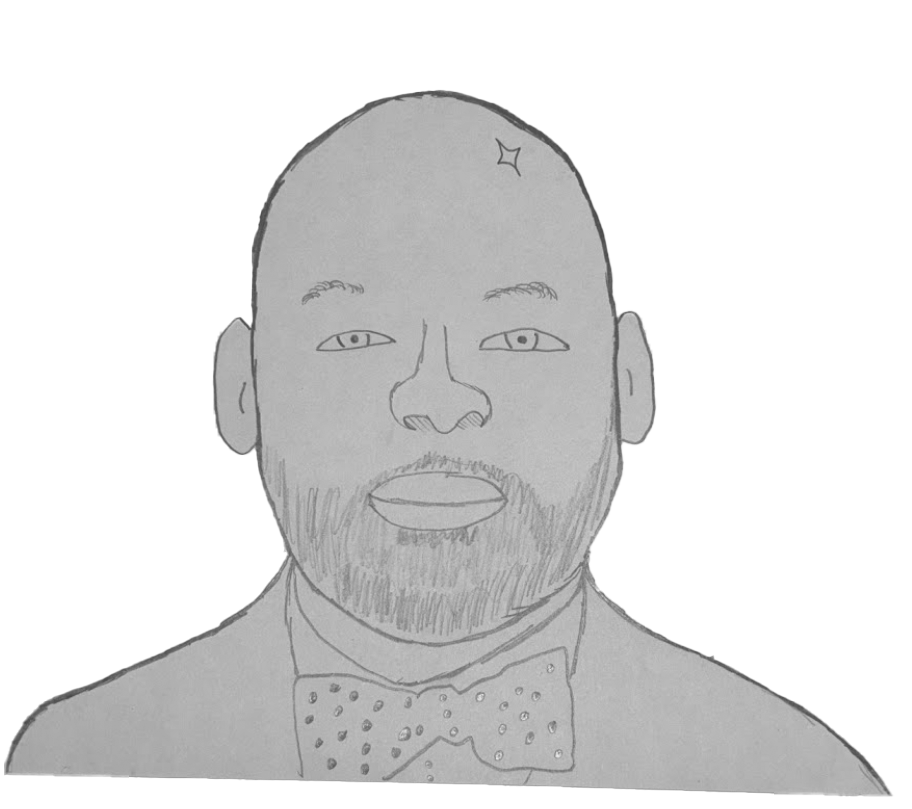Timeline of events during Trump and Biden’s previous terms:
- On June 16th, 2015, Donald Trump descended a golden escalator in Trump Tower in the heart of Manhattan to announce his 2016 presidential campaign. At the time, Trump, who was best known for his TV show “The Apprentice” and billion-dollar wealth was not, among experts and the general public, expected to pose a legitimate threat to the other republican candidates.
- In an unexpected turn of events, Donald Trump defeated democratic candidate Hillary Clinton, who had been widely favored by polls. Despite sexual assault allegations and a vulgar rhetoric that ruthlessly attacked African-Americans, Muslims, veterans etc. Trump’s “Make America Great Again” movement appealed to Americans who had felt long neglected by politicians and desired to “drain the swamp” of corruption within DC.
- In his term, Trump achieved the largest corporate tax cut on record and eliminated vast amounts of environmental regulations. He also appointed 3 conservative supreme court justices laying the path for the overturning of Roe vs. Wade.Trump imposed strict immigration laws including an executive order coined by Trump and his supporters as “The Muslim Ban” that prohibited travel and refugee resettlement from predominantly muslim countries. Over the course of his 4-year presidency the former president posted over 26,000 tweets providing a real time unfiltered view of his thinking about a multitude of issues. In his final days in office Trump was banned from Twitter for “risk of further incitement of violence” after the January 6th insurrection.
- On December 18, 2019, the house of representatives voted to impeach Donald Trump for abuse of power and obstruction of Congress. A formal house inquiry had concluded the former president had solicited foreign interference to help his 2020 re-election bid and instructed his administration to ignore subpoenas for inquiry.
- On March 13, 2020 the Covid-19 pandemic was declared a national emergency. 350,000 people died from covid in the US during 2020, and the total is now up to 1.3 million. In April of 2020 the unemployment level rose to 14.8%, a level not seen since 1948.
- After the killing of George Floyd on May 25, 2020, massive protests sprung up across the country to protest police brutality and racial injustice against black people. The event triggered unrest across the country forcing the national guard to be deployed across 28 states and dozens of cities to stop outbursts of violence, looting and arson. Trump and Biden’s campaigns which had been focused on covid and the country’s struggling economy were forced to pivot and address the nation’s anger over racism and police violence.
- In The 2020 election Joe Biden defeated Donald Trump by 306-232 electoral votes. After a summer of nationwide protests over racial injustice, and amidst a global pandemic voter turnout was at it’s highest in the 21st century. Record turnout from African Americans propelled Joe Biden to the nomination, including in Georgia a state that flipped to blue for the first time since 1992. Trump, followed by his supporters, insisted the election was fraudulent without proof and demanded to ‘Stop the Steal.”
- January 6th, 2021 saw a violent mob of Trump supporters descend on the capitol building in Washington, D.C. and break in during the election certification process. Trump, who had tweeted “Big protest in D.C. on January 6th. Be there, will be wild!” failed to stop the riot that led to the death of a law enforcement official and endangered hundreds of representatives. One week later, the house of representatives voted to impeach president Trump for the 2nd time for incitement of insurrection. However, Senate republicans failed to impeach Trump, which would have disqualified him from future presidential runs.
- of ReAfter a rocky transition from Trump’s presidency, Joe Biden and his democratic controlled congress passed a record amount of legislation in the first two years. The inflation reduction act invested billions of dollars into clean energy and the infrastructure bill invested 1 trillion dollars into improving the country’s highways, bridges and transportation. Biden withdrew troops from Afghanistan on August 30, 2021 with widespread criticism as the Taliban quickly took control of the country. After the 2022 midterm elections, republicans won a narrow lead in the House of representatives and the split lead has been struggling to pass legislation.
- The Russian invasion of Ukraine began on February 24, 2022 causing mass displacement of Ukrainians and destruction of cities. While initially support of Ukraine was nearly unanimous among congress, far right republicans have held aid and spending bills hostage because of the slim republican majority in congress.
- On June 24, 2022 the supreme court overturned Roe v. Wade and 50 years of guaranteed abortion rights for women. Trump appointed 3 of the 6 conservative justices who voted that a woman’s right to abortion as unconstitutional.
- On March 30th, 2023 Trump became the first president to be indicted for criminal activity in the Stormy Daniels hush money case. Trump, who was out of the spotlight for the early years of Biden’s term, now faces 4 indictments and 91 felony counts, any of which could produce a prison sentence. Trump has used his legal trouble to embolden his supporters and the MAGA movement by claiming the establishment is against them.
- On October 7, 2023 Hamas killed 1,139 Israelis and foreign nationals in a surprise attack in southern Israel. In response, Israel invaded the Gaza strip and has so far led to the death of over 30,000 Palestinians. Biden has been criticized by fellow democrats and young voters for his military support of Israel.
- While Biden remains unchallenged as the 2024 democratic presidential nominee, republican Nikki Haley proved to be a nuisance for Trump’s 2024 campaign as she refused to drop out until super tuesday in early March. She encouraged republican voters to look past Trump and vote for a less chaotic, legal troubled candidate but voters favored trump and he’s won nearly every primary.
- At the state of the union on March 7th, Biden recapped his accomplishments and tried to convince the American public he was still competent, despite his age. He addressed American’s worries over the border crisis and criticized republicans not passing legislation because Trump informed them not to.
- In seven months the 2024 election Trump-Biden rematch will take place. Much of America is disinterested in either candidate and whether or not Trump will be eligible to run due to court cases still hangs in the air. Voters will be forced to choose between a convicted convict or 81 year old Joe.
Student and staff perspectives:
With the upcoming presidential election, voters are posed with a familiar set of options. While another Trump vs. Biden race is hardly shocking, Garfield students, as future or current voters, find themselves unsure how to connect with candidates of older age. “It’s a little frustrating because they’re honestly the same, two old white men who have similar views,” Junior Sadie Howard said. “To a certain degree, it makes sense that older people are the ones running, [but] the people who are looking after the future of our country aren’t going to be around for it,” Junior Ruth Bieber said. “There’s no real representation [for] younger generations [and] people that aren’t old white men.”
While Garfield students are navigating being new voters, experienced voters, Garfield teachers share their perspectives on the election. Looking back to previous terms, “Trump if we can remember 2016 to 2020 defined his presidency around an anti-immigrant flavor, particularly anti-Muslim immigrant flavor,” AP Government and Politics and Psychology teacher Alfred Snyder said. More recently, “I think Biden is kind of a victim of circumstance in a way and of Congress not addressing issues along our southern border,” Snyder continued. For APUSH and ninth-grade history teacher Daniel Young, issues of focus for the election include climate policy, reproductive rights, the economy, and the present Israel/Palestine conflict. “I hope the [Israel/Palestine] situation changes or the administration changes its policy in order to try to change the situation. Because otherwise, I think that’s a big liability for the Democrats. That young voters [dissatisfied with candidate options] maybe just won’t turn out,” Young said. “I think [people] are probably paying less attention to this election than any previous presidential election, of my memory, because the two candidates are very disconnected from the general public,” Snyder said.
While both candidates represent different priorities, lacking representation of specific priorities has students questioning their options entirely. “I don’t want either of them, that’s my number one issue, [they’re] both terrible people, I don’t want to vote for either of them,” Howard continued. “It’s really disappointing and hard to have hope. When that’s what we’re faced with as the leaders of our country,” Bieber said. “Overall, I think it’s a general feeling of: I wish there were different candidates running,” Young said. Pressing questions of the fate of democracy itself with another Trump term causes stress regarding voting generally. “There’s the question of [if] Trump wins, is this the last democratic election we’ll ever experience? Because they’ll continue to undermine voter ability for people to participate in elections,” Snyder corroborated. “Or he will never leave the White House because he knows once he leaves and [all] the lawsuits against him and litigation, everything will restart,” Snyder continued.
The rising popularity of social media also makes it “an age where spreading one’s opinion is easier than ever,” Bieber said. “Mainstream media still seems to be perpetuating this kind of narrative of geriatric elderly status and downplaying accomplishments. They tend to be focused on personality, not on substance and policy, which is a pattern that’s always existed,” Snyder said. Combined with things like campaign ads, sponsored endorsements, and biased news sources, all attempting to sway voters, this adds a new layer to upcoming elections that the new generation of voters will have to navigate. “I wish more people [talked] to their friends and family. More to get opinions from real people, rather than just relying on [the] media or the news,” Young said, “Person to person, people are more reasonable [and] more open-minded.”
While the presidential election poses third party candidates that fall outside of the highly publicized Trump vs. Biden, many students “haven’t heard much about third party candidates,” said Howard. Unfortunately, “the system is very much rigged against third party voters,” Snyder said. “I think the moral of the story is if you don’t participate, if you opt out and you have the ability as a citizen and register to vote, then you’re essentially making someone else’s vote worth more. And so, you’re playing with fire,” Snyder added. “So I think we have a responsibility to participate in the elections, even if we’re not excited about the options before us,” Snyder said.
Biden campaign and plan overview:
To summarize his administration’s aspirational proposed federal budget for 2025, Biden’s plans are simple. It consists mainly of the liberal policies promoted by the progressive Democratic Party.
A concern for Garfield students is how they will pay for college. The Biden administration wants to tackle rising college costs by increasing funding for Pell Grants, which would expand dual-enrollment opportunities. Programs created by Biden like Seattle Promise would be enlarged with federal funding.
An issue for Seattlelites is housing affordability. Biden’s budget proposes billions for low income housing subsidies and tax credits. The largest amount of funding for housing in the budget is 258 billion dollars to maintain and build 2 million affordable housing units.
The Biden administration is supportive of increasing legal immigration but has recently proposed crackdowns on illegal immigration.
On healthcare, the Biden administration wants to increase spending greatly. Funding would increase access to mental healthcare, healthcare research, Obamacare, and expand access to prescription drugs.
Abortion is an issue not mentioned in the budget but it is well known that the Biden administration is a strong supporter of abortion rights. They say abortion bans are dangerous and have created a task force that aims to protect access to all reproductive healthcare.
Biden’s foreign policy is generally a continuation of traditional Democrat foreign policy. In his budget, he proposes a combined total of 92 billion dollars for Israel, Ukraine, and other NATO allies. On the events in Gaza, Biden had expressed support for Israeli retaliation at first after the attack on October 7. Recently however he has soured on the Israeli leader Benjamin Netanyahu’s handling of military operations in Gaza and supported calls for new elections in Israel due to disapproval of how deadly the Israeli response to Hamas has been.
Trump’s campaign and plan overview:
Donald Trump is not a traditional politician, as he does not conform to a predetermined ideology. He created his own ideology, to “Make America Great Again.” Trump’s ideas on how exactly to “Make America Great Again” have changed in many ways since his 2016 presidential run, making it difficult to predict what another Trump term would consist of. Though there is precedent from his previous presidency, his opinions on many policy issues have changed since then.
Trump, who is skeptical of higher education, could change things for many Garfield students. Federal funding to colleges and universities would be at risk if they teach anything to be deemed as against conservative cultural values under another Trump administration. Trump, however, would like to create a free online college called the American Academy that would mainly cater to Americans with unfinished degrees.
Fixing the housing crisis is a task that would greatly improve lives for Seattelites if completed. Trump’s solution for the housing crisis? Fixing the economy through lowering energy prices. He does not elaborate on how that relates to housing.
Trump and his loyalists always maintained an extremely anti-immigrant stance. Recently they did vote against a strict immigration control bill, but only to make Biden appear weak.
Trump has always tried to repeal Medicaid. Medicare and Social Security (which are for those 65+) however have not been touched by Trump. If Trump were reelected, the effects of his healthcare policies would mostly be felt by younger Americans.
During Trump’s presidency, he led a crusade against the Supreme Court ruling that protected the national right to abortion and succeeded. This resulted in abortion bans in many states. Since then he has flip-flopped in his opinion on a nationwide abortion ban.
Trump expresses strong support for Israel in their military operations in Gaza, which is generally a continuation of previous presidents’ policies, though he is abnormally extreme in his support for Israel. Trump had an unusual lack of pressure against Russia and its president, Vladamir Putin; he appears to believe that Ukraine is not somewhere where the US should intervene.
While Trump has said all of these things, it is important to remember that his ideas change very rapidly. What he actually would do as president would matter greatly on who controls Congress and who he surrounds himself with in the White House.







